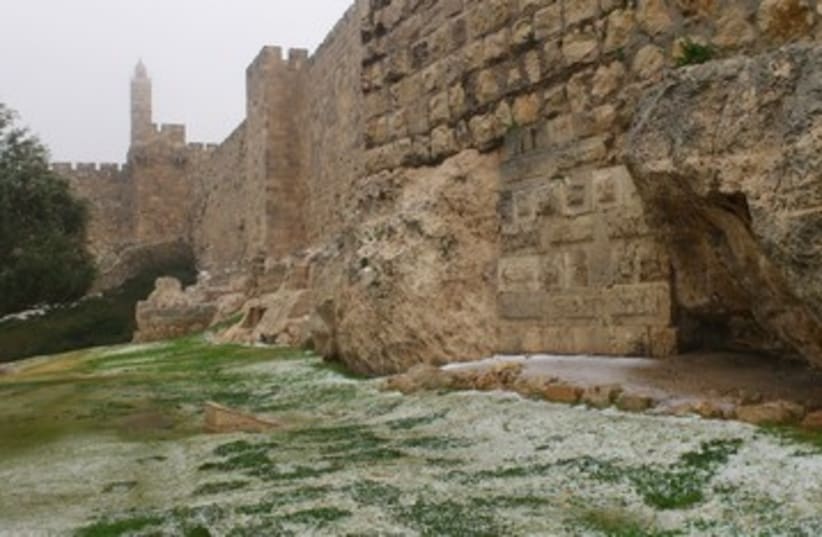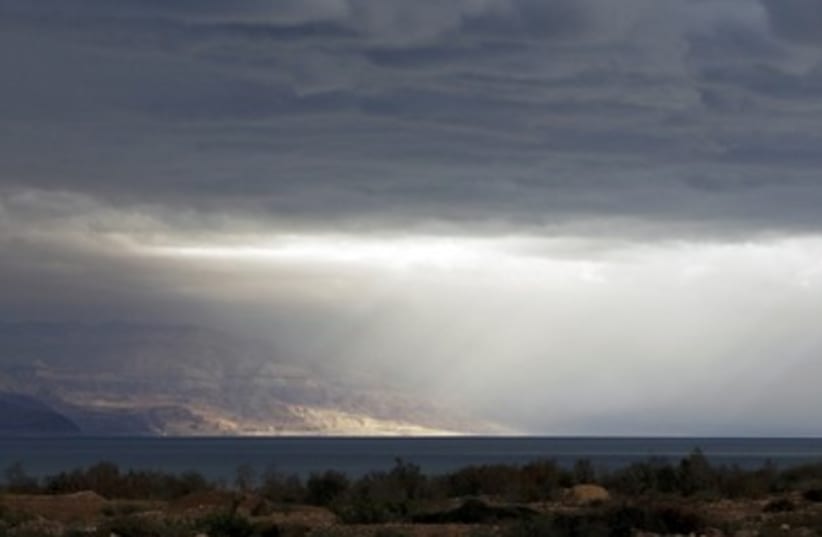
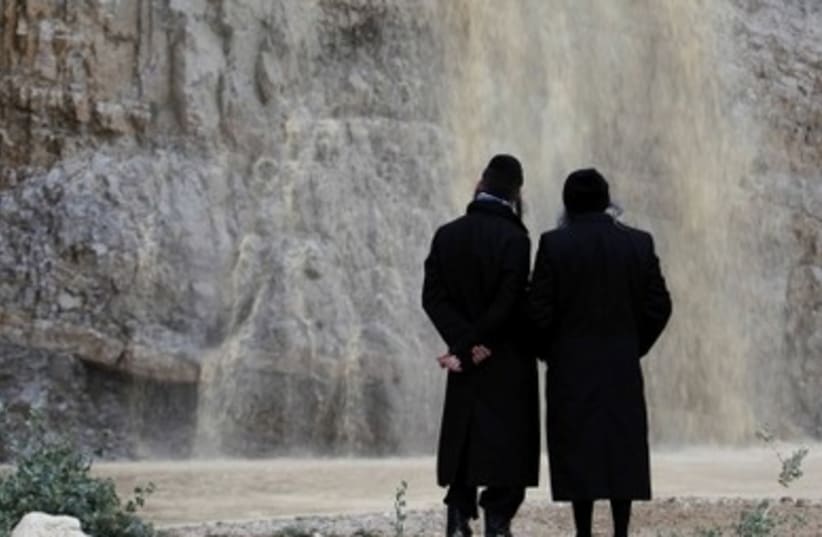
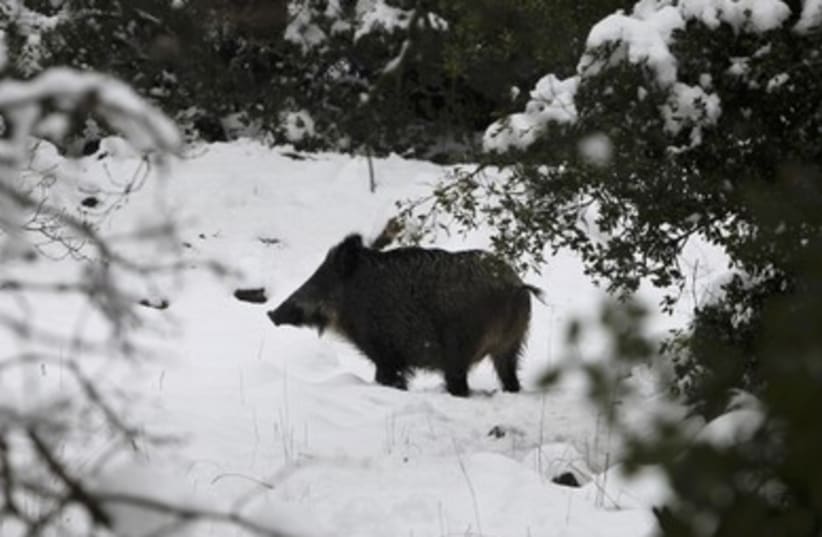
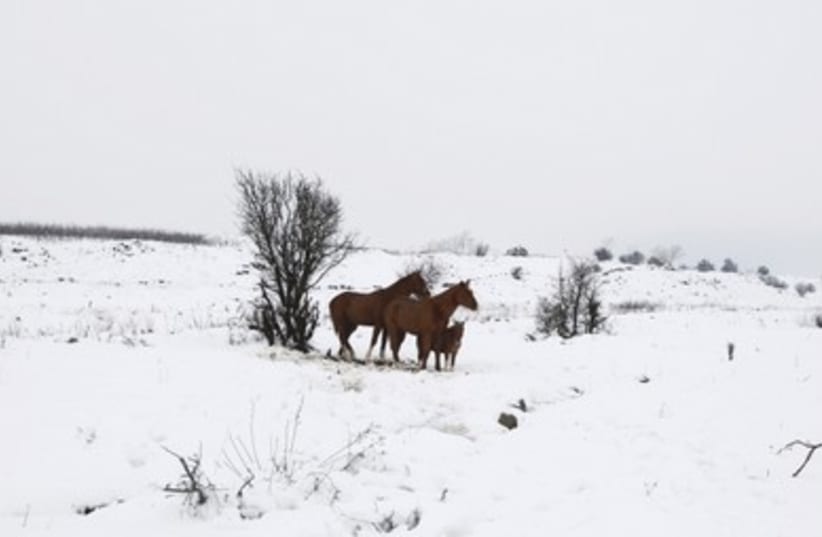
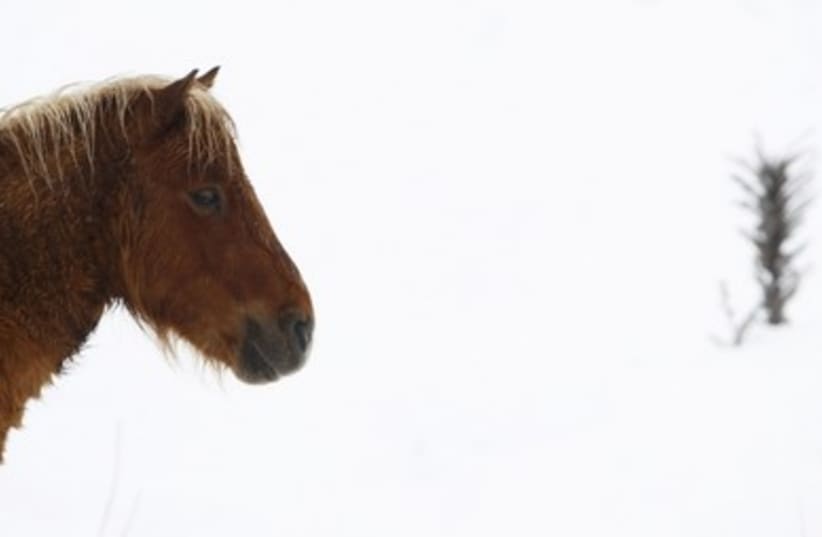
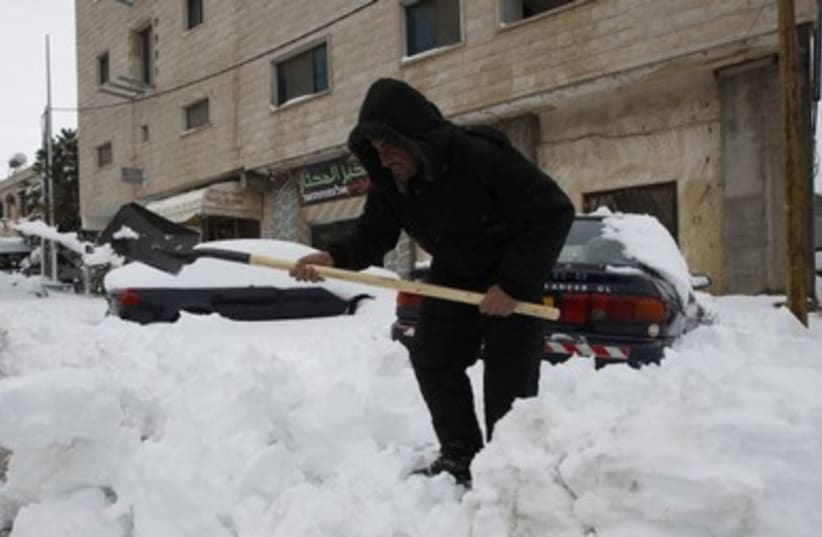
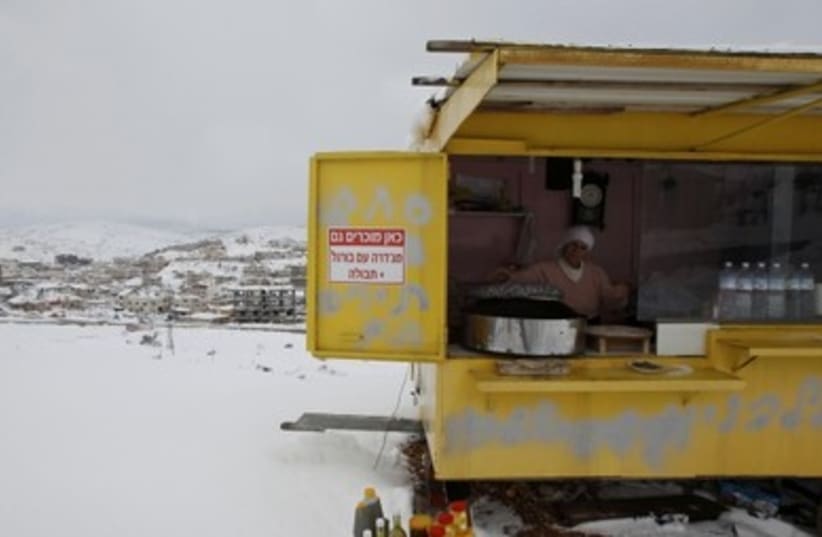
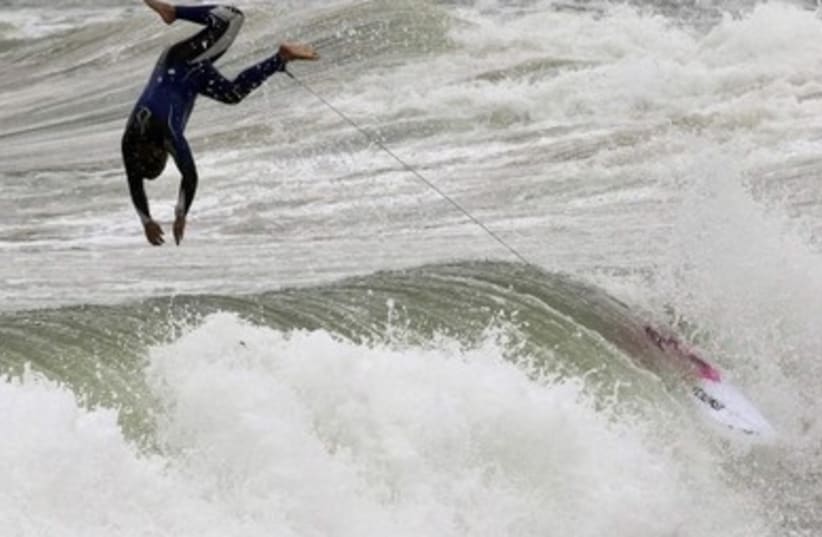

Several centimeters of snow coated the ground on Friday morning for the first time in four years, closing schools and causing Egged and other bus operators to temporarily disband lines both within and to and from the city.Families – young and old – flocked to the capital city from all over the country to enjoy the rare wintry weather, building snowmen and gliding down the slushy Sacher Park grass.Snow also covered Hebron, Bethlehem and continued to drop over the Golan Heights, where it has been falling since Wednesday. Preceding Friday’s snow, the country had also been drenched in rain from the North to the Negev all day Thursday.In preparation for the expected storm, the Jerusalem Municipality had conducted feasibility studies regarding potential snowfall for the weekend, placing approximately 50 snow plows, salt spreaders – filled with 40 tons of salt – and other equipment for maintaining the city’s main arteries on call. The city also launched a system for identifying freezing points and distributing salt on these primary thoroughfares.Staff from the capital’s Welfare Department and division of youth services also had organized information sessions on Thursday for the homeless and disconnected youth, according to the municipality, alerting them that an emergency center would operate 24 hours a day throughout the weekend.Meanwhile, the municipality’s veterinary services was also put on-call for any animal issues.In mountains outside of Jerusalem, about 10 to 15 centimeters of snow accumulated in Gush Etzion on Friday, where all schools were closed except for that of the Kedar settlement, according to a spokeswoman for the region.The Mount Hermon area remained closed on Saturday due to the ongoing precipitation, according to the ski resort’s website, which predicted clear conditions for skiing by Monday.Forecasting gusty winds and scattered showers overnight from the North to the Negev, the Israel Meteorological Service said that the rains should subside by Sunday afternoon, accompanied by rising temperatures.Lake Kinneret (the Sea of Galilee)’s level as of Saturday morning was 212.20 centimeters below sea level. This was eight centimeters more than Friday morning and 27 centimeters more than Tuesday morning, before the storm began, Water Authority spokesman Uri Schor told The Jerusalem Post on Saturday night.While the increase is encouraging, the lake’s basin is still 3.4 meters below the upper red line. Collectively, the country’s three main water sources – the Kinneret, the mountain aquifers and coastal aquifers – are missing about 1.5 to 2 billion cubic meters of water, due to the last seven years of drought.“It’s a wonderful year and we’re very happy about it, but in order to fill Lake Kinneret we need two more winters like that in a row,” Schor said. “We hope that we [will now have] at least seven good years.”
